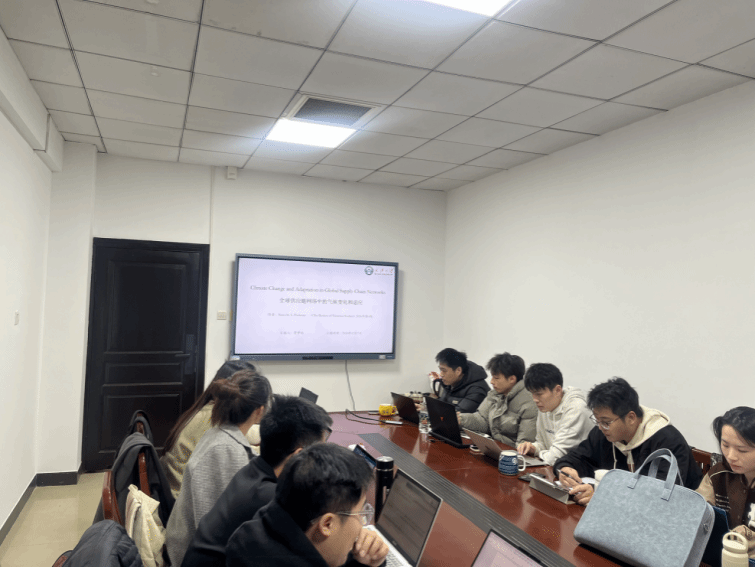气候变化与能源经济学术沙龙第199期
时间:2024年12月7(周六)9:00
地点:气候变化与能源经济研究中心会议室
Paper1:贾梦雨 Climate Change and Adaptation in Global Supply-Chain Networks
摘要:This paper examines how physical climate exposure affects firm performance and global supply chains. We document that heat at supplier locations reduces the operating income of suppliers and their customers. Further, customers respond to perceived changes in suppliers’ exposure: when suppliers realized exposure exceeds ex ante expectations, customers are 7% more likely to terminate supplier relationships. Consistent with experience-based learning, this effect increases with signal strength and repetition and decreases with country level climate adaptation. Subsequent replacement suppliers show a lower expected and realized but similar projected heat exposure. We find similar results for suppliers’ exposure to floods.
Paper2:余文珺 How does critical mineral trade pattern affect renewable energy development? The mediating role of renewable energy technological progress
摘要:Critical minerals are considered to be indispensable raw materials for renewable energy development. Different countries have different capacities to access and provide critical mineral resources in trade pattern, and this difference in role and status have important impacts on renewable energy development. Therefore, based on a complex network approach, we construct global critical mineral trade networks from 2000 to 2019 to quanti�tatively analyse their topological characteristics. Then the dynamic econometric model is used to analyse the effect of critical mineral trade pattern on renewable energy development and the mediating role of renewable energy technological progress. We find that critical mineral trade networks have obvious “small world” characteristics. As an important critical mineral trading country, China has strong trade strength and central influence. A country’s trade strength and central influence is beneficial for renewable energy development, especially for high-income economies, and this gaining effect has been enhanced after the passage of Paris Agreement. More importantly, trade strength and central influence can contribute to renewable energy development through renewable energy technological progress. Our findings have important implications for leveraging mineral trade to facilitate the global clean energy transition
